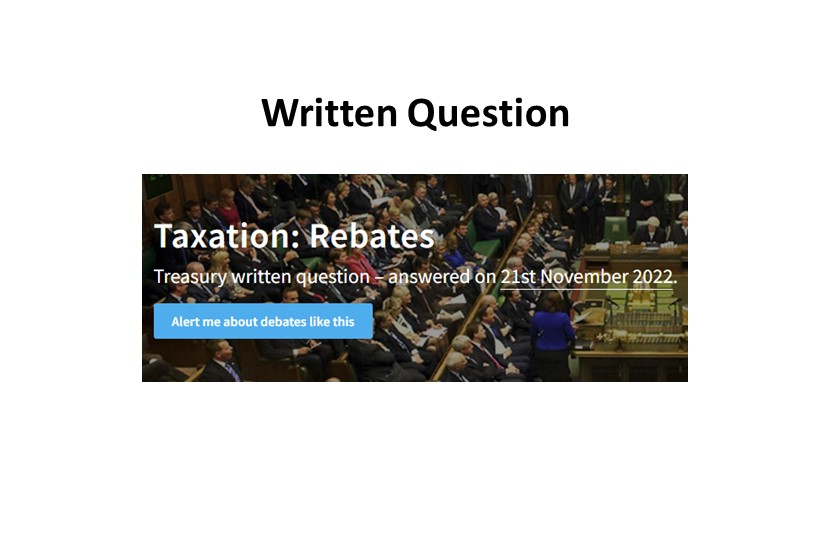
Chris Seeks To Clarify Position On Tax Rebates & Agents
Christopher Chope Conservative, Christchurch
To ask the Chancellor of the Exchequer, what safeguards his Department has implemented to ensure that companies who act as tax agents have the full and informed consent of the taxpayers on whose behalf they accept rebates; how many payments his Department has made in the last three months to Ensign Advisory Ltd; and whether companies acting as tax agents are authorised to deduct a fee from a rebate they receive before passing it on to the taxpayer on whose behalf they act.
Victoria Atkins The Financial Secretary to the Treasury
Individuals can claim tax repayments from HMRC and HMRC will refund them directly. However, HMRC will issue a tax repayment to a third party when a taxpayer has either nominated or assigned the repayment to them.
Companies which specialize in claiming tax refunds often use assignments as part of the sign-up process, which means the repayment then legally belongs to that agent. When a taxpayer signs an assignment, HMRC is obliged to make payment directly to the repayment agent. Repayment agents may deduct a fee from the repayment before they forward the repayment to their client. This will be set out in their terms and conditions.
When a customer has used a repayment agent and has an assignment in place, HMRC completes essential checks to satisfy that the assignment is valid. HMRC takes firm action against any agent who does not comply with the law.
HMRC launched the “Raising standards in tax advice: protecting customers claiming tax repayments” consultation on 22 June 2022. The consultation sought views on restricting the use of assignments for tax repayments, and introducing measures designed to ensure taxpayers see material information about a repayment agent’s service before entering into a contractual agreement.
The consultation ran for 12 weeks and closed on 14 September 2022. We will publish a summary of responses in due course.
The Autumn Statement announced changes to Research & Development relief from 1 April 2023, reducing the risk of abuse. The new requirement for claimants to provide additional information with their claim includes providing details of any agent involved with the claim.
HMRC does not comment on identifiable businesses due to strict confidentiality rules.
- ENDS -



